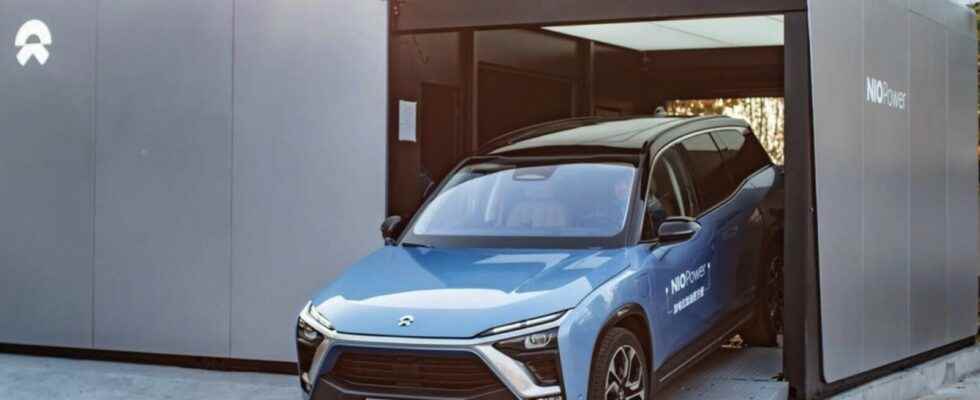The Chinese e-car manufacturer NIO is known for its efforts to make replaceable battery technology socially acceptable. The “Swap Stations” have another trick against blackouts in store.
Removable battery station from Nio: soon the stations will be able to help prevent power outages. (Source: NIO)
- In China, electric car manufacturer NIO is testing a new variant of its battery exchange stations.
- Some systems can already feed electricity into the public grid in the event of bottlenecks.
- The technology is in demand because the power grid is often overloaded this summer, especially in cities.
The “range anxiety” with electric cars can be countered in a variety of ways. One of them tries electric car manufacturer NIO. The manufacturer already has more than 1,000 automated swap stations in operation in China. If you haven’t seen this yet, you’re missing out! It only takes a few seconds to swap an empty battery for a full one.
A partnership has been entered into with the mineral oil company Shell, and the system also wants to be established in Europe. The first NIO vehicles will soon be seen on the streets of Germany. Now NIO also wants to use the Swap Stations to stabilize the power grid.
According to a post on the Chinese network Weibo, a new generation of swap stations is being used, which is already being tested in practice in the home country of China. According to the manufacturer, at peak times when the regular power grid is overloaded, the battery swapping stations can supply electricity to the public grid. In China, there have been more power outages due to unusual heat this summer, they say.
Currently, 13 batteries with a total capacity of up to 700 kilowatt hours are stored in a typical swap station. According to NIO, the regular exchange operation is not affected by the feed-back into the grid. Exchangeable batteries are also on the rise in the two-wheeler sector, in electric motorcycles and scooters. Well-known companies such as Piaggio and Yamaha have formed a consortium here.
Don’t miss anything with the NETWORK-Newsletter
Every Friday: The most informative and entertaining summary from the world of technology!
